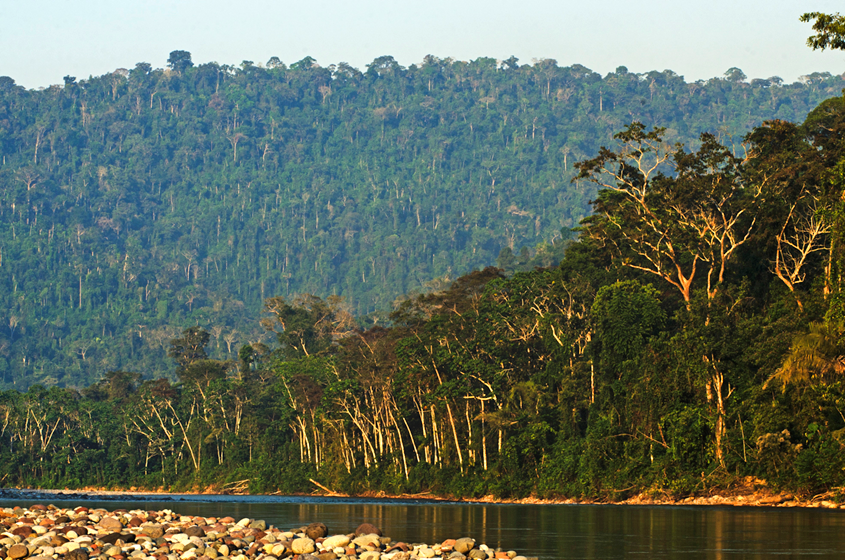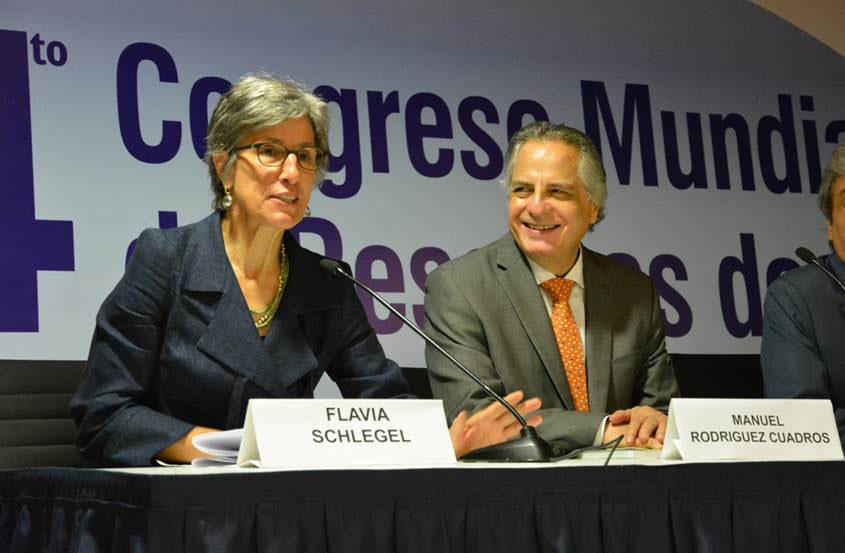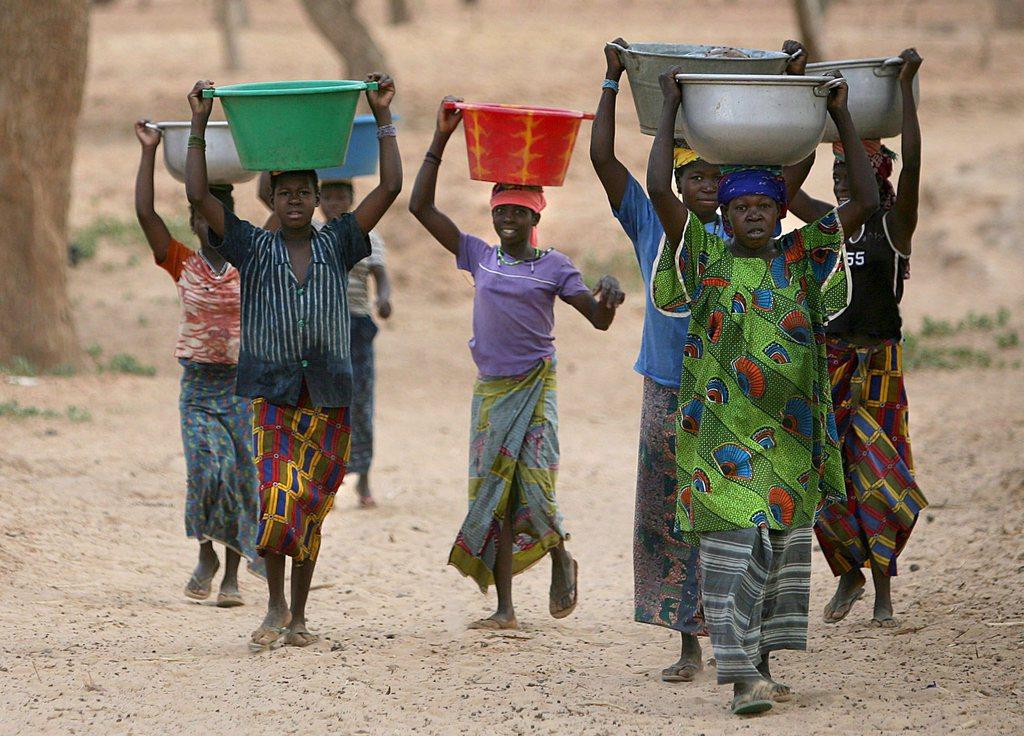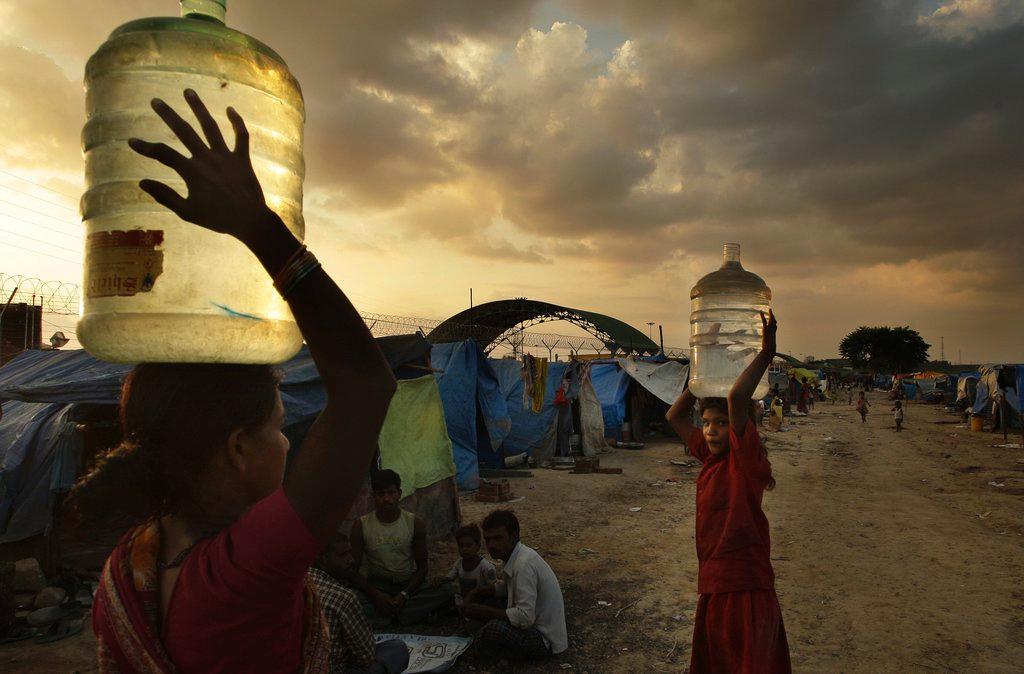Conflicting interests are challenge for biosphere reserves

Biosphere reserves are model regions for sustainable development, but there are many obstacles to their creation, as Swiss expert Flavia Schlegel tells swissinfo.ch, and ongoing challenges once they are created.
At its congress in Lima, Peru last week, UNESCO members approved 20 new UNESCO Biosphere Reserves and an action plan for these areas to help achieve the UN’s agenda for sustainable development.
But as the example of Peru shows, creating and maintaining reserves is no easy task. Just last November, the central government ordered a stop to road building that threatened to bring illegal gold mining activities into the Manu biosphere, and illegal logging remains a menace in the Oxapampa-Ashaninka-Yanesha reserve.
Flavia Schlegel is UNESCO’s assistant director-general for natural sciences.
swissinfo.ch: How important was it for this fourth World Congress on Biosphere Reserves to take place in Lima?
Flavia Schlegel: It is a real milestone. It’s the first time this congress takes place outside of Europe. We have biosphere reserves in over 120 countries, but it was always driven more or less by Europe. To be able to have this fourth congress in Latin America shows that the cooperation, north-south, but also south-south is gaining more and more traction, which will be an essential criteria for the [UN] sustainable development goals.
Also, the World Congress comes just after the 2030 (Sustainable Development Goals or SDGs) adoption and the Paris agreement on climate change. UNESCO believes that biosphere reserves are true models when it comes to sustainable development. To be able to have this world gathering and adopt a strategy in the Lima Action PlanExternal link to show the way forward, just at the beginning of implementation of SDGs, I think is a real chance to ensure that biosphere reserves contribute to sustainable development globally.

swissinfo.ch: Did the example of the four Peruvian biosphere reserves matter in the decision to hold the congress here?
F.S.: When you look particularly at the four biosphere reserves here I think they serve as model sites, both in their successes but also in the challenges that they face. For instance one of the biosphere reserves where you have some illegal activities regarding roads, there is the issue of illegal gold mining as well. So you have a very realistic image of the issues surrounding biosphere reserves, the opportunities and the risks and the challenges that the local governments and the managers of biosphere reserves face. You have an interesting reality of biosphere reserves to which many other countries in the world can relate to.
swissinfo.ch: Given the increasing threats on the environment related to climate change and the demands to move towards more sustainable development, should biosphere reserves be expanded or increased in number?
F.S.: The values relating to biosphere reserves involve social inclusion, environmental protection, but they also have a goal to provide an economic basis for the people living on or from them. So I think for governments looking at how to implement the sustainable development agenda can solve issues affecting biosphere reserves in a sustainable manner, then they also have the tools, experience and skills to manage on a much larger scale other issues related to sustainable development.
swissinfo.ch: Only 120 of the 190 or more member states of the UN have biosphere reserves. What are some of the issues that are keeping countries from having their own UNESCO approved reserve?
F.S.: There may be political, financial or technical issues. It is quite a process to mount a dossier and an application to UNESCO for adoption. It also requires a consensus process within the country, with the people living on this potentially designated area with local businesses. There must be a dialogue with local government and the national government.
It is a rather complex governance process which every country may not be able to go through or be able to invest resources in. It is not only a question of least development or poorest countries. We have countries in Europe which have designated areas but somehow the issues that need to be resolved are not easy. This is why I think that the process offers a great learning experience, when it comes to multi-stakeholder governance and sustainable development.
swissinfo.ch: Consulting local populations is of course very Swiss. To what degree do Switzerland’s biosphere reserves serve as examples for the rest of the world?
F.S.: Tough discussions took place in the Entlebuch. Some local people were absolutely convinced that this was the way to go while others were rather critical, because obviously you have to comply with some rules, particularly regarding the core zone. There were some fears that they could not exploit [the land or resources] or that businesses would be limited. So even in a country like Switzerland, quite a complex discussion occurred, but in the end the local people must be behind it. If the local people do not vote for a biosphere reserve, I do not think it will fly.
In Entlebuch what they do really well is to show that when you invest in a biosphere reserve, you get a return. What they do is promote the reserve as a tourist destination. The way they deal with local products is also a good example.
swissinfo.ch: As a woman leading this division of UNESCO, what do you think of the name ‘Man and the Biosphere’? Are member states considering making it more “inclusive”?
F.S.: The terminology regarding Man and the Biosphere, the terminology of reserve, the terminology of conservation, are topics of constant discussion amongst member states. At UNESCO we are facilitating this discussion. We therefore do not have an opinion. It is up to member states to decide what they are comfortable with. Yes, there is a discussion: where are the women and children? But there is no alternative [at the moment] that would satisfy the majority of member states.

In compliance with the JTI standards
More: SWI swissinfo.ch certified by the Journalism Trust Initiative


You can find an overview of ongoing debates with our journalists here. Please join us!
If you want to start a conversation about a topic raised in this article or want to report factual errors, email us at english@swissinfo.ch.